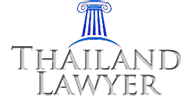Thailand has been through a number of coups and aggravated by unstable political situation, the country’s economic growth is greatly affected. But, according to the Government Public Relations Department, the baht is on a festive mood largely contributed by foreign investors’ trust on the economic strength of Thailand.
This growth may be attributed to the Thai government’s adoption of various initiatives through the Board of Investment. Until this day, Thailand is among the leading rice exporters in the world but manufacturing remains to be the greater contributor to the nation’s GDP. With this strong economic showing, Thailand is performing better even at the world stage.
If you are an expatriate who is planning to establish a business venture in Thailand, you need to know the types of Business Structures:
- Partnership – is composed of two or more persons involved in a business venture and the profit of which is distributed proportionally. Partnership can be subdivided into three general subtypes.
- Unregistered Ordinary Partnerships – the partners are liable, in whole and jointly, of the obligations of the partnership.
- Registered Ordinary Partnerships – the partnership becomes disconnected and unique from the individual partners as it became a legal entity if it is registered.
- Limited Partnerships – the liability of an individual partner is limited to his contribution of the capital. Partnerships such as this must be registered.
- Limited Company – these are companies in which their owners have the privilege of limited liability of the debts and losses of the companies.
Private Limited Companies
- A company registered under this subtype is governed by the Civil and Commercial Code.
- Requires at least three shareholders.
- Its constitutive documents include the Memorandum of Association (Articles of Incorporation) and Articles of Association (By-laws).
- If prescribed on the articles of incorporation or articles of association, the directors’ liability can be unlimited. Moreover, they manage the limited company as afforded by the firm’s charter and bylaws.
- The private limited company may be wholly owned by foreign nationals but in company operations reserved for Thai nationals, the alien-owners’ participation is limited up to 49 percent only.
Registration fee is 5,500 baht per million baht of capital.
Public Listed Company
- A company registered under this subtype is governed by the Public Company Act.
- Requires at least 15 shareholders.
- The shareholders are not allowed to sell/transfer their shares within the prescribed period of two years.
- The board must have at least five members with Thai nationals comprise at least half of the total.
- Is subject to comply with the prospectus, approval and other requirements, offer shares, debentures and warrants to the public and may apply for its securities be listed at the Stock Exchange of Thailand (SET).
- Joint Venture – is a group of persons (natural and/or juristic) entering an agreement and carry on a business together. Income from the joint venture is subject to corporate taxation (as one entity) as prescribed by the Revenue Code but the same is not yet recognized as a legal entity under the Civil and Commercial Code.
- Representative Office – its functions are limited in providing its head office abroad of information and non-profit (non-trading) activities:
- Functions to search for sources of goods and services in Thailand for overseas based headquarters.
- Checks the quality and quantity of the goods and services ordered by the overseas headquarters.
- Gives advice to the headquarters about the ordered goods.
- Supplies/promotes the products of the headquarters to Thai customers.
- Reports to headquarters the economic movement of Thailand.
- Branch Office – is a business entity that carries out activities for its overseas based head office. These activities may be income generating and therefore, taxable under Thai laws. Essentially, it shares the same set-up with that of a limited company only that it does not have shareholders or promoters to start with being it a branch of a foreign based company.
In legal terms, the branch office is treated as one and the same with its head office therefore, the latter will also be answerable to any violations and or liabilities that the former have incurred in Thailand.
- Regional Office – like the Representative Office, a Regional Office is not allowed to conduct business in Thailand. It can only start operating in Thailand if its head office has already received clearance from the Department of Business Development – Ministry of Commerce as authorized by the Foreign Business Committee.
It functions as:- Development and training arm of the head office
- Management of finances
- Contingency for consultation and management services
- Operates as a “forward base” for its head office by communicating, coordinating and directing the branches and affiliates in the area
- Financial management
- Sales promotions planning and control on markets
- Product development
- Sole Proprietorship – it may be considered as the simplest of business structures on one look basing on its characteristic as a business entity owned by a sole person. That being said, it is the single owner which will be held answerable to all liabilities and incumbencies that the business will incur.
- Consortium – it is similar to Joint Venture only that it holds at least three distinct characteristics that sets it apart. First, a Consortium is not considered as a legal body in Thailand. Second, basing on the Revenue Code, it is also a nontaxable body. And lastly, although it is bonded by a contract between two or more bodies (business entities), each participant of the consortium remains independent from one another making them solely responsible for their individual corporate loss and gain.

